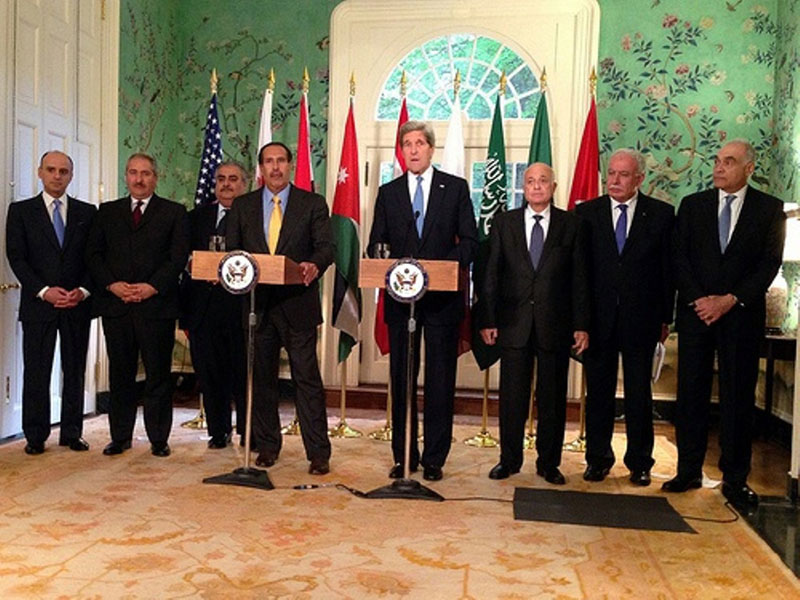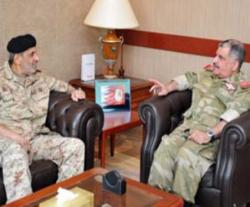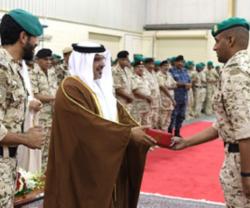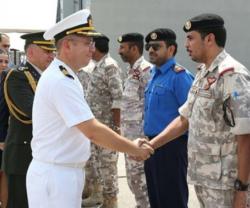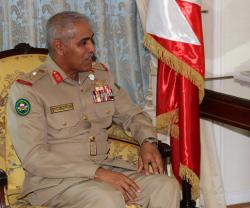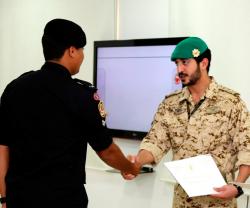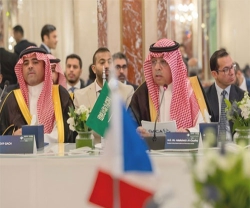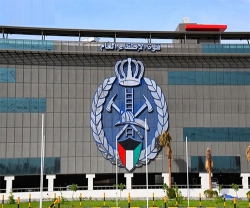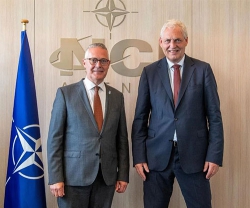Arab states appeared to soften their 2002 peace plan on Monday when a top Qatari official said Israel and the Palestinians could trade land rather than conform exactly to their 1967 borders.
Sheikh Hamad bin Jassim al-Thani, Qatar’s Prime Minister and Foreign Minister, made the comment after he and a group of Arab officials met U.S. Secretary of State John Kerry to discuss how to promote Israeli-Palestinian peace.
Speaking on behalf of an Arab League delegation, Sheikh Hamad appeared to make a concession to Israel by explicitly raising the possibility of land swaps, although it has long been assumed that these would be part of any peace agreement.
“This news is very positive,” Israeli Justice Minister Tzipi Livni told Army Radio on Tuesday.
“In the tumultuous world around ... it could allow the Palestinians to enter the room and make the needed compromises and it sends a message to the Israeli public that this is not just about us and the Palestinians,” she added.
The meeting with U.S. Secretary of State John Kerry on Monday made a fresh push to revive the moribund Middle East peace process in a bid to re-launch a decade-old Saudi plan.
Kerry has suggested that the Arab Peace Initiative - unveiled in 2002 by Saudi King Abdullah in which 22 Arab countries would normalize ties with Israel in return for Israeli withdrawal from occupied lands - could provide a framework.
Far from the cameras, the new top U.S. Diplomat held talks with Senior Ministers from the Arab League, Bahrain, Egypt, Jordan, Saudi Arabia, Qatar and the Palestinian territories to discuss the initiative.
The Ministers, meeting in the privacy of Blair House just a stone’s throw from the White House, were also joined by Vice President Joe Biden, for what Kerry called a “very positive, very constructive discussion.”
“I underscored the Arab League’s very important role... by reaffirming the Arab Peace Initiative here this afternoon,” Kerry told reporters after the talks
Since taking office on February 1, Kerry has made no secret of his hope to revive peace talks, which broke down in 2010, but it remains unclear whether U.S. President Barack Obama will decide to back a major U.S. effort.
Kerry has already traveled three times to the region, meeting senior Israeli and Palestinian officials, pursuing what he has called “a quiet strategy” in an ambitious bid to revive the talks and achieve a peace treaty which has eluded successive American administrations for decades.
Addressing reporters after the talks, he said he had reaffirmed the vision of President Barack Obama of “two states living side-by-side in peace and security, brought about through direct negotiations between the parties.”
The Arab League proposal offered full Arab recognition of Israel if it gave up land seized in a 1967 war and accepted a “just solution” for Palestinian refugees.
Rejected by Israel when it was originally proposed at a Beirut Summit in 2002, the plan has major hurdles to overcome.
Israel objects to key points, including a return to 1967 borders, the inclusion of Arab East Jerusalem in a Palestinian state and the return Palestinian refugees to what is now Israel.
The core issues that need to be settled in the more than six-decade dispute include borders, the fate of Palestinian refugees, the future of Jewish settlements on the West Bank and the status of Jerusalem.
Source: Al Arabiya; Agencies - Photo: State Department

